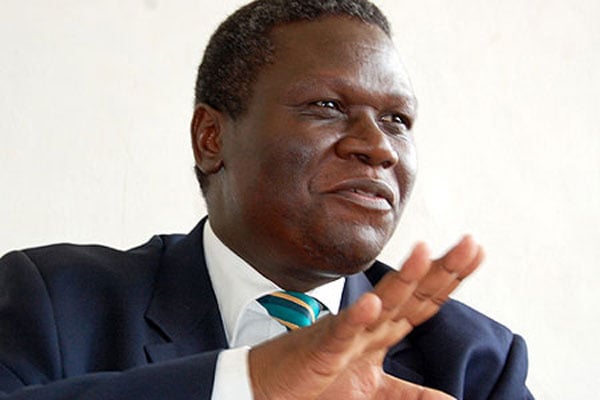Prime
Will East Africa pipeline see light of day before fossil fuel becomes extinct?

Norbert Mao
What you need to know:
- Eventually the penalty will be felt along the entire automotive value chain. The car buyers will stop buying cars that use fossil fuel. The car manufacturers will stop making cars that use fossil fuel. Electric cars will become the new normal. Vessels that use fossil fuel will join the dinosaurs in the museums of history.
A friend recently told me that if you don’t have £15, you can’t drive a petrol or diesel car into Central London. Electric cars don’t attract that penalty which is aimed at discouraging the use of fossil fuel.
Eventually the penalty will be felt along the entire automotive value chain. The car buyers will stop buying cars that use fossil fuel. The car manufacturers will stop making cars that use fossil fuel. Electric cars will become the new normal. Vessels that use fossil fuel will join the dinosaurs in the museums of history.
Yet in our blessed republic, recently two heads of state signed an agreement to build a pipeline evacuating crude oil from our oil fields in the Albertine Grabben to the Indian Ocean via 10 districts in Uganda and into northern Tanzania. It will be nothing short of miraculous if the project, dubbed the East Africa Crude Oil Pipeline, sees the light of day before 2030!
This may sound pessimistic but when it comes to the oil business in today’s world and given the context of the whole initiative, pessimism may be more rewarding. In any case, as one wag once said, pessimism allows one to be proved right in case a feared prediction occurs.
But pessimism also allows one to be pleasantly surprised should a feared prediction not come to pass. If you predict rain and it rains, you are proved right.
Should it not rain, you’re pleasantly surprised and you don’t have to deal with wet shoes! Ok, let me moderate my pessimism and call it cautious optimism. After all I’m generally known as an optimist.
We have some obvious reasons for caution. The first reason, as I have stated above, is that fossil fuel is fast being pushed out of the market thanks to advances in automotive technology.
Second is that the cost of the project is so high that it is hard to imagine where the money will come from. The governments of Uganda and Tanzania put ink to paper in the hope that the core investors will commit $3.5b! The investors on the other hand are hoping that some banks will lend them the money to invest. Yet the banks are developing cold feet because they are facing pressure from the global environmental protection campaigners not to invest in fossil fuel.
Third, with every disputed electoral outcome the legitimacy of the Uganda government comes under greater scrutiny and question. The extent of violence, breaches of electoral laws and general abuse of human rights has earned the Uganda government a lot of condemnation from the United Nations, and international NGOs.
Erstwhile friends of Uganda like the United States have activated laws aimed at punishing individuals who were cited in violating electoral laws. Political uncertainty whether based on actual facts or perception has the effect of deterring and discouraging foreign direct investment.
Already, the visa restrictions by the United States, though being downplayed by Uganda, is likely to send signals to other friends of Uganda including financial institutions to reassess the political risks of investing in Uganda. Rather than being dismissive, government should be proactive and take diplomatic steps to normalise relations. In addition, it should take steps domestically to address concerns over human rights abuses and violations of electoral laws.
The combination of political uncertainty, lack of liquidity by Uganda, likely plot for geopolitical considerations by international oil giants to stall Uganda’s rise to oil giant status, the hostility of the global environmental lobby to new oil projects, the fact that Uganda is stuck because it has already received payments from France’s Total and China’s CNOOC and likely drastic dip in demand for fossil fuel in the next 10 years will certainly delay Uganda’s oil plans.
In the light of the above, Uganda has to rethink its strategy and consider investing in a big refinery and establish industries to make by products from petroleum. In 10 years refinery equipment will be a lot cheaper because of the rise of electric cars.




